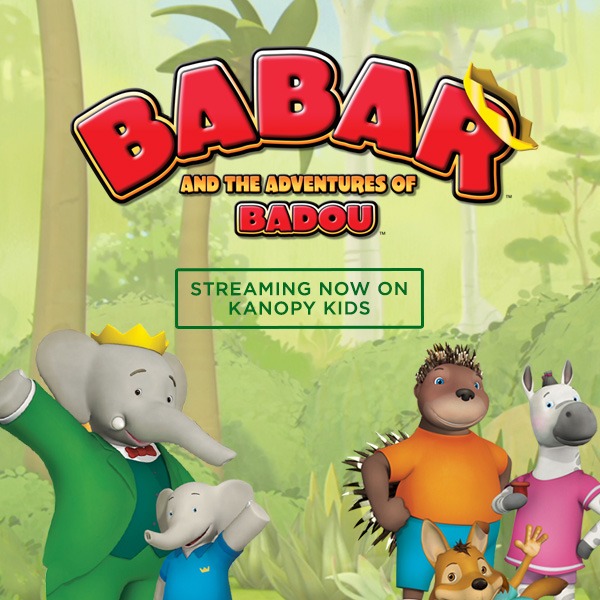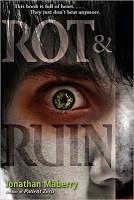Tracy’s Rating: 3/5 Stars
Lucinda’s Rating: 3.5/5 Stars
Audience: Young Adult/Teen
Genre: Post-apocalyptic Fiction/Horror
Summary: It’s been fourteen years since First Night, when the dead suddenly reanimated and ended civilization as we know it. Now, the living bunker down in isolated communities surrounded by the great “Rot and Ruin.” Benny Inmura, recently turned fifteen, must get a job or have his rations drastically cut. Unfortunately, the only option he can see is to join the family business with his hated older brother, venturing outside the the fences of Mountainside into the Rot and Ruin to act as a bounty hunter and zombie killer.
Tracy’s Thoughts:
I liked it, but I didn’t love it. Rot & Ruin has been one of the “it” books in the YA blogosphere since before its release in September 2010, so perhaps I was expecting too much (again). The concept reminded me quite a bit of The Forest of Hands and Teeth—an unexplained zombie apocalypse and isolated societies that separate themselves from the infected zombies with fences and guards. But Maberry has taken his story in a completely different direction than Carrie Ryan’s horror hit, and his premise is an intriguing one.
Although the message is a bit heavy-handed at times, the exploration of the idea that zombies were once people too and therefore deserve some respect is definitely a bit different. It helps that Maberry’s zombies aren’t horrific monsters stalking their prey, but actually shambling, rather pathetic creatures. Of course, they are still pretty threatening en masse. But the real villains of the novel are the lawless men who roam the Rot and Ruin, torturing the zombies and even humans for sport. Unfortunately, the main villain was a bit one-dimensional. Also, I hated that at one point late in the novel he gave a completely uncharacteristic monologue about his motives. That’s just lazy writing. As high school English teachers are fond of saying, “Show, don’t tell.”
I found the other characters appealing—especially Benny’s brother Tom and the mysterious “Lost Girl”—but not quite fully-fleshed. I could never really connect with any of them, as much as I wanted to. This is especially true of Benny, the primary character and narrator. His motivations were sometimes baffling, especially his hatred for his brother and only relative. I would have loved to learn more about Benny and Tom’s history and seen more of how they interacted before they became colleagues.
Like the characters, I found that the action lacked that special something that I was looking for. Even the surprises seemed a bit predictable. And some of the scenes that could have been cinematic nail-biters fell a bit flat. Still, though the prose lacked immediacy and elegance, it’s solid enough. I read the entire book—and it’s a thick one!—without ever losing interest. For all the niggling gripes I have about the book, I never once wanted to but the book aside and move on to something else. (I do that a lot.) I wavered between a 2.5- and 3-star rating for a while, but finally settled on 3 stars for the intriguing world and ingenuity of premise. All the pieces are there, just in need of a bit more polish and a dash of emotion. Also, you sort of have to read Rot & Ruin to fully appreciate book 2 in the series—Dust & Decay—which offers up everything that Rot & Ruin is missing (IMHO).
Lucinda’s Views:
I really enjoyed this book. Benny’s evolution from a clueless fifteen-year old whose only exposure to the Rot and Ruin is through stories told at the local general store to a person who knows what exists in the great beyond is well developed and believable. Benny’s journeys both physical and mental are peppered with ethical questions such as “Are the zombie’s truly the undead? Do they have feelings? What constitutes torture, when something is dead, where to draw the line, etc?” are all thought provoking. Tom’s humane treatment of the dead is a stark contrast to the other bounty hunters’, especially Charlie Matthias’s, treatment of the undead. This contrast serves to push the story along to its inevitable conclusion. A conclusion that may be very surprising to all.









